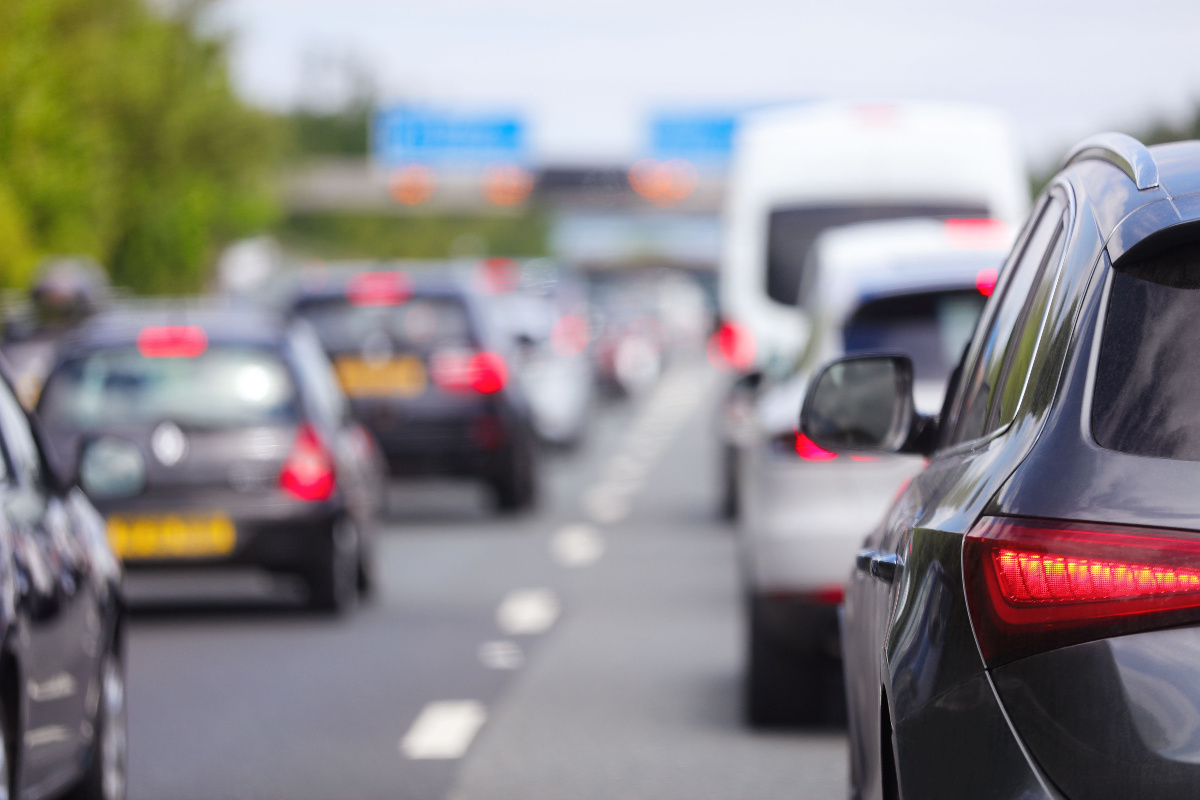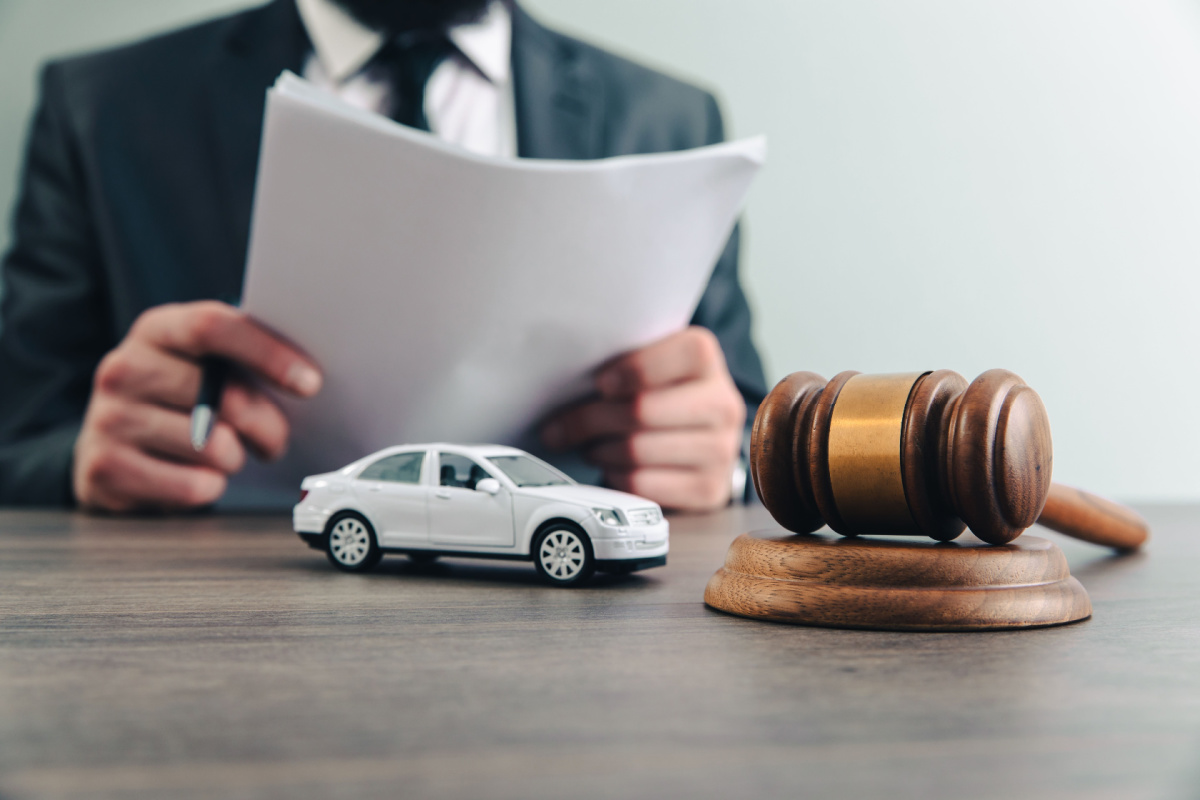
James works as partner in the New Orleans office of Charbonnet Law Firm, located at 3750 South Claiborne Ave, in the same place where it has stood as a staple of the community since it was built in 1974.

In Louisiana, car accident laws have distinct features, especially involving vehicles from other states. These differences can significantly impact how claims and disputes are handled. One key difference lies in insurance regulations. Louisiana follows a “fault” system for car accidents, meaning the driver at fault is responsible for the damages. However, this can become complex when out-of-state insurance policies are involved, as they may have different coverage limits and conditions. Another notable aspect is Louisiana’s comparative fault rule, which allows damage recovery even if the in-state driver is partly at fault. However, the compensation gets reduced by their percentage of fault.
Dealing with insurance after a cross-state car accident presents unique complexities. Each state has its own rules and minimum coverage requirements for auto insurance. For instance, a driver from a state with lower minimum requirements might find their coverage inadequate in an accident in a state with higher standards. This scenario can lead to complications in settling claims. Additionally, determining which insurance policy applies — the policy of the state where the accident occurred or the driver’s home state — can be intricate. Insurance companies often have different procedures for handling claims involving out-of-state accidents, which may prolong the resolution process.
Determining fault in multi-state car accidents within Louisiana jurisdiction can be a complex process. Louisiana operates under a comparative fault system, which means each driver involved in an accident can be held responsible for a portion of the fault. In accidents involving drivers from different states, this can become particularly intricate. Factors such as traffic violations, witness statements, and accident reports play a significant role in establishing fault. Louisiana’s unique legal framework, including its specific traffic laws, also influences how fault is assessed. For instance, if an out-of-state driver is unfamiliar with local driving regulations, they might inadvertently contribute to the accident, affecting the fault determination. Accurately establishing fault is critical as it directly impacts the outcome of insurance claims and potential damage recovery.
The statute of limitations in Louisiana sets specific deadlines for filing car accident claims. This timeline is crucial for anyone involved in a car accident to understand. Generally, Louisiana allows one year from the accident date to file a lawsuit for personal injury or property damage. This means if the claim is not filed within this one year, the opportunity to seek legal remedy in court may be lost. The statute of limitations is strictly enforced, regardless of the accident’s severity or the extent of the injuries. The one-year limit applies to most car accident cases, but there can be exceptions based on specific.
Louisiana’s comparative fault rules play a significant role in car accidents. Under these rules, each driver involved in an accident may be assigned a percentage of fault. This system differs from the ‘all-or-nothing’ approach seen in some states. In Louisiana, even if a driver is partly at fault, they can still recover damages. However, the amount they receive is reduced by their percentage of fault. For example, if a driver is found to be 30% at fault in an accident, they can still recover 70% of the total damages.
This approach allocates responsibility and damages more fairly, based on each party’s contribution to the accident. It encourages drivers to be mindful of their driving behavior, knowing their actions can directly influence the outcome of any claims following an accident.
After an interstate accident in Louisiana, there are several steps individuals can take to seek compensation. Firstly, gathering as much information as possible at the accident scene is important. This includes exchanging contact and insurance details with the other driver, taking photos of the accident, and getting contact information from witnesses.
Secondly, reporting the accident to the police is vital. A police report provides an official account of the incident, which is helpful when filing an insurance claim.
Next, individuals should notify their insurance company about the accident promptly. Providing the insurer with all the collected information and the police report helps in the claim process.
Documenting everything related to the accident is also crucial. This includes keeping track of medical treatments, repairs to the vehicle, and any other expenses incurred due to the accident.
Lastly, monitoring the claim process and following up with the insurance company ensures the compensation claim is actively addressed. These steps are key in effectively managing the aftermath of an interstate accident in Louisiana.
For Louisiana residents involved in accidents with out-of-state vehicles, dealing with insurance can be challenging. It’s important to know insurance policies can vary significantly between states. In such an accident, gathering comprehensive information from the other driver is a key step. This includes their insurance details, contact information, and vehicle registration.
Clear communication is vital when contacting insurance companies. Louisiana residents should provide all relevant accident details and insurance information. It’s also helpful to understand the coverage limits and terms of the out-of-state insurance policy, as these might differ from Louisiana’s standards.
Keeping a detailed record of all communications with insurance companies is beneficial. This includes dates of conversations, the names of the representatives spoken to, and the specifics of what was discussed.
Finally, residents should be patient, as out-of-state insurance claims might take longer to resolve due to the differences in state laws and insurance policies. These tips can help Louisiana residents effectively manage insurance matters in interstate accidents.

In cross-state car accident claims, several common pitfalls can occur, but being aware of them helps in avoiding potential issues. One major pitfall is misunderstanding the insurance policies of different states. Insurance coverage and laws can vary widely from state to state. To avoid this, individuals should familiarize themselves with the relevant state’s insurance laws.
Another pitfall is failing to document the accident thoroughly. Collecting as much evidence as possible at the accident scene is vital, including photos, witness information, and detailed notes. This helps in presenting a clear and factual account of the incident.
Delayed communication with insurance companies can also complicate claims. Promptly notifying the insurance company and providing all necessary information helps in speeding up the claim process.
Lastly, underestimating the time it takes to resolve cross-state claims is a common issue. Such claims often require more time due to the involvement of multiple jurisdictions. Being patient and keeping detailed records of all communications can aid in smoothly navigating these complex claims.
If you have been involved in a car accident, please contact the Charbonnet Law Firm, LLC online, or call our office at (504) 294-5094.

With over 50 years of legal experience serving families in the New Orleans area and surrounding Louisiana communities, our firm takes pride in providing clients with personalized legal services tailored to individual needs.